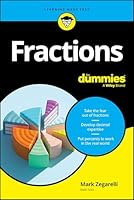
Artificial Superintelligence: A Futuristic Approach
- Length: 227 pages
- Edition: 2015
- Language: English
- Publisher: Chapman and Hall/CRC
- Publication Date: 2015-06-19
- ISBN-10: 1482234432
- ISBN-13: 9781482234435
- Sales Rank: #139247 (See Top 100 Books)
A day does not go by without a news article reporting some amazing breakthrough in artificial intelligence (AI). Many philosophers, futurists, and AI researchers have conjectured that human-level AI will be developed in the next 20 to 200 years. If these predictions are correct, it raises new and sinister issues related to our future in the age of intelligent machines. Artificial Superintelligence: A Futuristic Approach directly addresses these issues and consolidates research aimed at making sure that emerging superintelligence is beneficial to humanity.
While specific predictions regarding the consequences of superintelligent AI vary from potential economic hardship to the complete extinction of humankind, many researchers agree that the issue is of utmost importance and needs to be seriously addressed. Artificial Superintelligence: A Futuristic Approach discusses key topics such as:
- AI-Completeness theory and how it can be used to see if an artificial intelligent agent has attained human level intelligence
- Methods for safeguarding the invention of a superintelligent system that could theoretically be worth trillions of dollars
- Self-improving AI systems: definition, types, and limits
- The science of AI safety engineering, including machine ethics and robot rights
- Solutions for ensuring safe and secure confinement of superintelligent systems
- The future of superintelligence and why long-term prospects for humanity to remain as the dominant species on Earth are not great
Artificial Superintelligence: A Futuristic Approach
is designed to become a foundational text for the new science of AI safety engineering. AI researchers and students, computer security researchers, futurists, and philosophers should find this an invaluable resource.
Table of Contents
Chapter 1. AI-Completeness: The Problem Domain of Superintelligent Machines
Chapter 2. The Space of Mind Designs and the Human Mental Model
Chapter 3. How to Prove You Invented Superintelligence So No One Else Can Steal It
Chapter 4. Wireheading, Addiction, and Mental Illness in Machines
Chapter 5. On the Limits of Recursively Self-Improving Artificially Intelligent Systems
Chapter 6. Singularity Paradox and What to Do About It
Chapter 7. Superintelligence Safety Engineering
Chapter 8. Artificial Intelligence Confinement Problem (and Solution)
Chapter 9. Efficiency Theory: A Unifying Theory for Information, Computation, and Intelligence
Chapter 10. Controlling the Impact of Future Superintelligence







